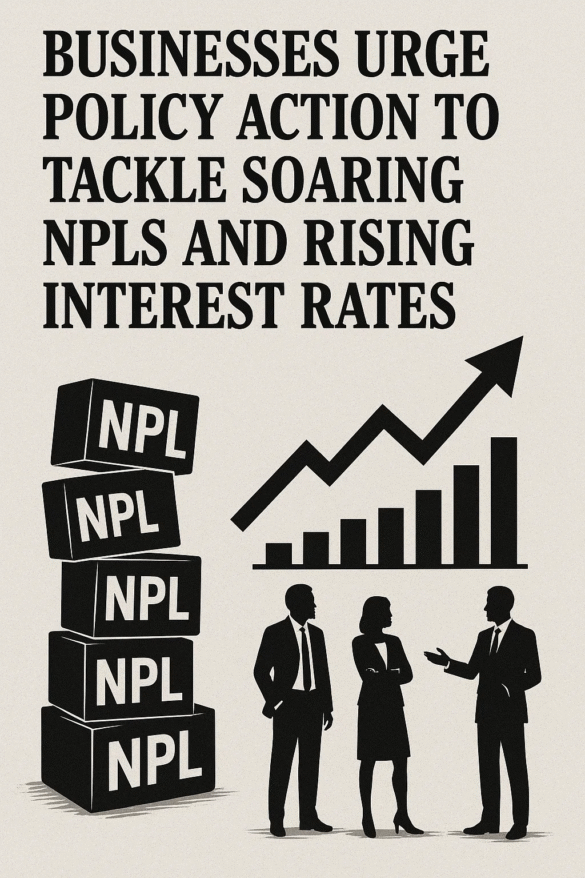Businesses in Bangladesh are making a strong call for urgent policy interventions to address the dual challenges of soaring non-performing loans (NPLs) and rising interest rates, which are significantly impacting the nation’s economic recovery. This critical appeal was a central theme at a recent seminar organized by the Dhaka Chamber of Commerce and Industry (DCCI), highlighting the mounting pressure on the banking sector and its ripple effects on credit flow and business operations. The discussions underscored a collective desire for proactive measures to restore stability and confidence in the financial system.The seminar highlighted the worrying amount of defaulted loans in Bangladesh, estimated at Tk 4.2 trillion, which makes up more than 24 percent of all loans that are still owed. Business leaders voiced deep concerns that this surge in NPLs, coupled with increasing interest rates, is eroding confidence among borrowers and stifling vital credit access, especially for manufacturers and small and medium-sized enterprises (SMEs) already facing macroeconomic stress. This challenging environment is putting immense pressure on corporate balance sheets, hindering investment and growth across various sectors. Participants at the DCCI event emphasized the critical need for borrower-friendly and coordinated reforms. Among the key measures proposed were the implementation of interest subsidies, providing partial credit guarantees, and actively promoting fintech-based loan disbursement systems to ensure more efficient and accessible financing. Additionally, the DCCI recommended a six-month extension in the loan classification timeline and advocated for a clear distinction between willful defaulters and those who default due to genuine business challenges, suggesting rehabilitation-based models for the latter. While representatives from the central bank defended market-based interest rates and tight monetary policies as necessary tools to control inflation, business leaders argued for innovative approaches that extend beyond conventional punitive actions. They stressed that a balanced strategy is essential to support businesses through these tough times, ensuring that genuine enterprises can continue to operate and contribute to the economy. The ongoing dialogue between the private sector and financial regulators is crucial for developing policies that effectively address current challenges while fostering long-term economic health. The unified call for action from the business community reflects a strong commitment to strengthening Bangladesh’s financial ecosystem. By embracing coordinated reforms that promote transparent lending practices, provide targeted support to struggling businesses, and enhance the overall predictability of the economic environment, the nation can overcome these hurdles. Such policy actions promise to restore credibility, unlock credit flow, and ultimately pave the way for a more robust and inclusive economic recovery, benefiting all stakeholders and ensuring sustainable growth for Bangladesh.
Businesses Urge Policy Action to Tackle Soaring NPLs and Rising Interest Rates
45
previous post


